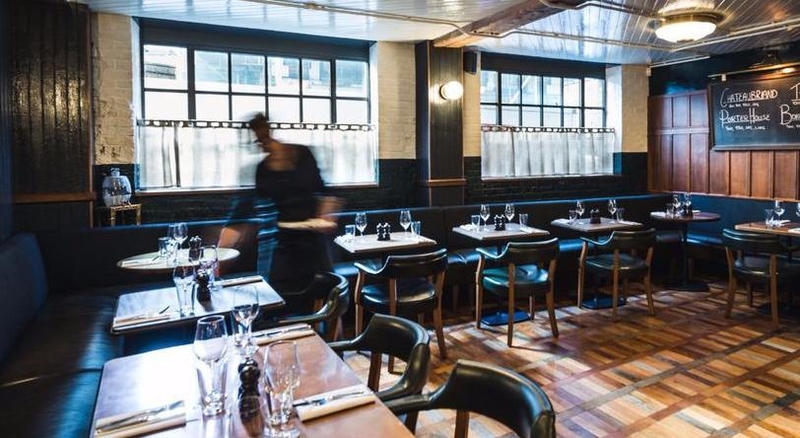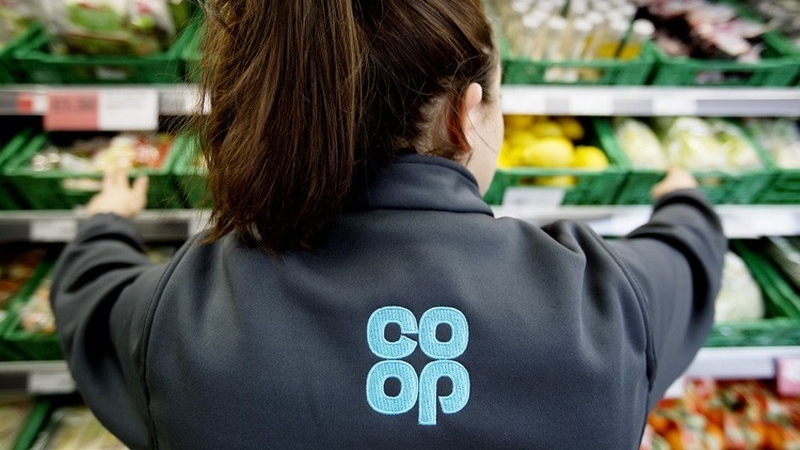As pubs and restaurants reopen we assess the next challenge for the industry
In the last week, pubs and restaurants have fully reopened and boy have we been happy to see them. We’ve eaten and drunk our way around town and eaten and drunk our way back again. But while hospitality is overjoyed to see its customers, this is not the end of the beleaguered sector’s problems. While people need pubs, pubs, it turns out, need people. Recruiting workers for the sector has proven very difficult in recent times. Put simply, the demand for skilled and experienced workers is outstripping supply.
Chefs in general are treated like a Blackpool donkey - worked to death, 16-hour shifts with no breaks
Pre-pandemic around 3.2 million were employed in the industry including bars, restaurants and hotels. But from February 2020 to now, the largest fall in payrolled employment has been in the hospitality sector, according to the ONS. Industry journal The Caterer has said that the number of vacancies on its website has grown by more than 85% in the last few weeks, with 22,000 roles now being advertised.
To see if the situation is causing issues in the North West, Confidentials checked in with Abi Dunn, founder of specialist hospitality recruiter Sixty Eight People. She told us: “It certainly seems our next battle in hospitality is a talent one. We haven’t seen anything like this before. We mainly speak to salaried managers but we are finding that between 30-40% of candidates we speak to have left the industry. During the pandemic they have found other roles, perhaps less exciting, but ones which are giving them a much greater work/life balance.”

John Holden, Food and Beverage lecturer at Tameside College, is also seeing the effects: “I've had something to the tune of 20 to 25 employers contact me over the last weeks. I've got students that want jobs. But I've only got a certain amount of students,” he told us.
Will Beckett of Hawksmoor has a more reflective take. He points out that the reopening after lockdown is an unprecedented set of conditions that we have not seen anything like before: “Most people in our industry believe that it’s a structural problem, that there are not enough people properly qualified or skilled people for the number of jobs that are available. It's certainly possible. But there's another possibility, which is that there's no structural problem, it's just that everybody's flexing up their workforce at exactly the same time. I think it's going take us a while to work out which is which.”
While the pandemic is one obvious driver, Brexit is another key issue. Post Brexit at least 355,000 skilled and experienced people left their jobs in hospitality and residency in the UK. John Holden sees the two factors working in tandem: “People have actually gone home [because of the pandemic], and when they find that the Brexit paperwork to get their visas or permits to work back in the UK is a bit long-winded, they are thinking, well I won’t bother."
Staff and skills shortage in #hospitality is as acute as can be right now. However it is only the beginning and will get far worse very quickly. Right now working in the industry is seen as precarious as can be. Without decisive & urgent action we are in for a very tough time.
— Fred Sirieix (@fredsirieix1) May 23, 2021
Working conditions in hospitality
As with any industry, hospitality is not a monolith. There are bar staff, front of house, many layers of chefs, and that’s just in your standard restaurant. There also hotel workers, receptionists, people who do street food and pop-ups – the list of roles and skills is endless. To try and keep things streamlined we concentrated on the chefs but many of their thoughts will apply to workers across the sector.
The working theory among many of the chefs we talked to echoes what Abi Dunn told us. The enforced time off has led them to search for work that offers a better quality of life.
Chef Adam Hewison told Confidentials: “I started in the industry at 15, loved it, full of passion and went all over the world cooking. I was working in Manchester before the pandemic as a sous chef but the responsibility piled on. I was doing the job of a head chef, pot washer, cleaner etc for the wage of a sous which is very common in the industry.
“Then at the start of the pandemic I was 'let go' with no furlough, no support, nothing and that was essentially the straw that broke the camel’s back. Chefs, in general, are treated like a Blackpool donkey - worked to death, 16-hour shifts with no breaks. I think the general consensus is that now we've been forced to spend time off with our families and friends we've all realised how much we're missing and decided eight hours a week Monday to Friday is better, leading to me changing my career and retraining to become an electrician.
“I also think a lot of lower-level chefs have moved into Amazon, factory work and supermarkets and realised they can get paid roughly the same for less hours and get their full legal break allowances and not have to work weekends, nights and holidays.”

Adam’s words were echoed by another experienced chef, who did not wish to be named: “Over my career, I have worked with quaint independents, multinational companies and large, finer-end restaurants. The non-stop abuse on my body of regularly pulling 70+ hours a week has begun to show.
“I have a bad back, varicose veins in both legs, and varicoceles, which have left me unable to stand at times. I have used alcohol, prescription meds, and other less legal ways of powering through the pain. All in the name of 'service'. I have been promised promotions, pay rises, which never materialise.”
According to Mark Garner, restaurant critic and Confidentials gaffer, the wages issue has been exacerbated by price wars between restaurants trying to entice consumers with extremely favourable pricing: “The consumer is getting a very good deal compared to 20 years ago, and the people who paid the price were the workers. What consumers have to realise is, if you've got these price points then you have to go and find cheap labour," he said.
“These groups of venture capitalists that finance some restaurants weren't interested in their staff’s wages at all - or they were only interested in how to keep wages down, because their perception was 'we can't raise the price'. As in all businesses, you've got to be able to say ‘look, you know I've got this great product, but how much does it cost to produce?’ And if you don't pay the right prices to produce it, then you don't have the right profit and eventually, the wheels come off.”
Thers no doubt employers need to offer flexibility where possible for many roles. Its not ok to expect staff to work 50-60 hr weeks. Work life balance is critical for mental health / wellbeing. Before we look after guests in a hospitable way, we have to first care for ourselves
— Brenda Collin (@Brendacollin66) May 20, 2021
According to Mark, we should all be revising our expectations for the price of a good meal out. Just as it has become accepted that quality ingredients cost more, so we should be willing to pay a little extra for great service. He also has lots of opinions on tipping, but that’s a whole other article.
His words are echoed by the anonymous chef: “The industry is under-payed, under-staffed, over-worked and at breaking point. All the people that are rushing to eat out is not helping the industry. The loans that companies have had to take will cripple them. While people think that all food should be around £12 for a burger meal, the only thing that will survive is ‘Spoons. It breaks my heart seeing Michelin-starred chefs having to do a fixed price menu, that has no hope in hell of breaking even.”
So, the solution should be simple right? Charge a little more, offer higher wages and sort out working conditions. Sorted.
Hospitality is struggling with recruitment at the moment, even a company like Hawksmoor (who were listed as one of the best companies to work for in the UK yesterday for the 10th year in a row, in case we hadn’t mentioned it) doesn’t find it easy. https://t.co/6fUQrIpj2e
— Hawksmoor (@HawksmoorLondon) May 23, 2021
Back to Will Beckett of Hawksmoor on how his high-end steak restaurant achieved its reputation as a good employer: “We really try to treat people like adults, we tried to think about work-life balance. We have a remuneration package that allows staff to work a reasonable number of hours and has benefits like decent maternity or access to counselling or pensions or critical illness cover. And I think it's pretty well known that it's a nice place to work. Not easy by any means - you are going to work on some Saturday nights, you are going to do physical work, you will be on your feet a lot.
“I don't think the industry should spend much of its time hand wringing about working in the industry relative to working in another industry. What we can all do is have a little look around the industry and think, ‘How can we raise our game? How can we be a better employer? Because what you want is those people who like hospitality, who want to work in it. You want them to work for you.”
It should be noted though, that even with Hawksmoor’s rep, it gained some notoriety over the weekend when The Times reported on its refer a friend policy, where existing staff could get up to £2000 for bringing in new staff. Will says that the reporting was a bit overblown but that the employee referral scheme was thought to be a better use of money than advertising on websites or using recruiters.

What’s the solution to the staffing shortage?
Abi Dunn says: “The reality of the working conditions within the sector must be addressed and as an industry we must work together to change the perception of it.”
John Holden adds: “There needs to be more conversation, it needs to be more discussion. And that's the reason why I started Bridging the Skills Gap some two years ago, which started off with just a small meeting between Manchester colleges and a few employers. But I've kept on having those meetings, to discuss how we can start building a national framework of collaboration. My thoughts are that we should be starting an industry-based academies that link to colleges and employers.
“We need to change the perception of hospitality as a career, we need to change perception of hospitality in schools because people just see it as a weekend job. There needs to be more emphasis on trying to make cooking or teaching hospitality as a main core subject rather than an option.
“You've got to have the passion, the drive, the motivation, because sometimes it is long hours, a lot less long hours now than it was when I first started in the industry - the industry is now taking on those concepts of mental health, more family time."
For Mark Garner the solution is even more radical. He thinks that pressure ought to be on the owners and the big restaurant groups to take responsibility, unions might be a way to achieve that: “I think they [unions] can come back in the 21st century way. But the thing about it today using current techniques for communicating, WhatsApp groups and so on. I think it would work."
The last word goes to our unnamed chef: “If your readers want to see a change for the better in the industry, don't eat at the big companies, support the smaller places run by chefs: they pay fair, they don't overwork their staff, and the food is stunning.”















